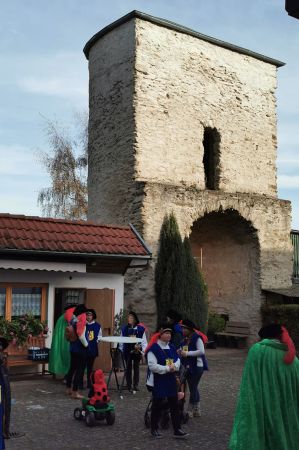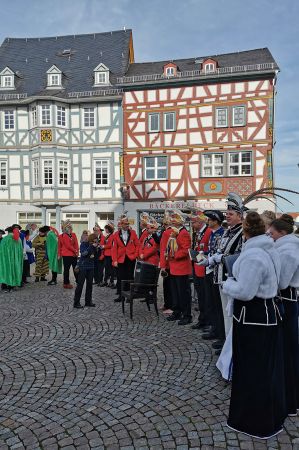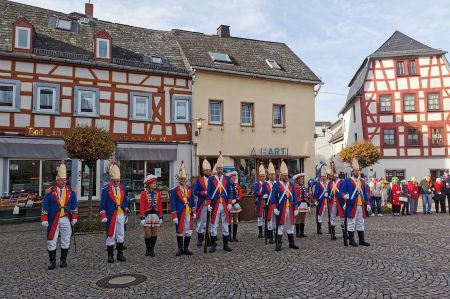Unexpected surprise in Bad Camberg in Hesse
- Written by Portal Editor
Since the 19th century, the official opening of the carnival session has taken place in many areas in addition to or separately from the start of the "normal" carnival season on Epiphany, January 6th, on November 11th, the "eleventh within the eleventh". took place, which of course we didn't have on our radar during our visit to Bad Camberg.
So when we were looking for interesting photo motifs on the buildings along the city wall, we came across an old gate that aroused our interest. A little later we were surrounded by disguised citizens who informed us about the date and the associated beginning of the carnival season, at least here in Bad Camberg. Now one may be a friend of disguise and this folk festival or leave the region because of the aversion to this festival, it was interesting to realize that a large number of disguised citizens had gathered on the market square and could sing and dance happily, despite everything of the prevailing problems and the war.
Martin's Day, the end of the farming year

In the Christianity influenced by Byzantium, St. Martin's Day was at the beginning of Lent, which was celebrated from the Middle Ages to modern times - in the Orthodox Churches partly to this day - before Christmas. On the last day before the start of Lent, people could once again really feast – analogous to the carnival.

However, especially in the surrounding area, more and more carnival sessions are being held during this time - even before November 11th - because then most of the artists performing are cheaper than in the high season, when they have many performances in one evening. In January, the foolish time begins, especially in the strongholds, with the presentation of the new regents, the prince proclamation.
The mighty and the lowly are equal
Similar festivals, mostly associated with the awakening of nature in spring, can be found in all cultures of the Mediterranean region: In Egypt, the exuberant festival was celebrated in honour of the goddess Isis, and the Greeks organized it for their god Dionysus and called it Apokries .
The Romans already organized colourful processions
However, current research strongly doubts dates such as Saturnalia or Lupercalia as the origin of the carnival tradition.
Germanic theories (so-called continuity premises) were particularly popular during National Socialism, but are still sometimes unconsciously quoted today. The scepticism towards all theories that assume a tradition of Germanic or Celtic customs has remained unbroken since 1945. For this reason, it can be assumed that there were no festivals similar to Shrovetide for several centuries, but rather that they arose in the high and late Middle Ages with Lent.
Please read as well:
Tsiknopempti - carnival is like a family fest at Zampetas
Mountain Village Vevčani - rural half-timbered and Eco-Village
-
-
-
-
-
-
-
-
-
-
-
-
https://www.alaturka.info/en/germany/hesse/5868-unexpected-surprise-in-bad-camberg-in-hesse/amp#sigProIde9f7dea4ec
